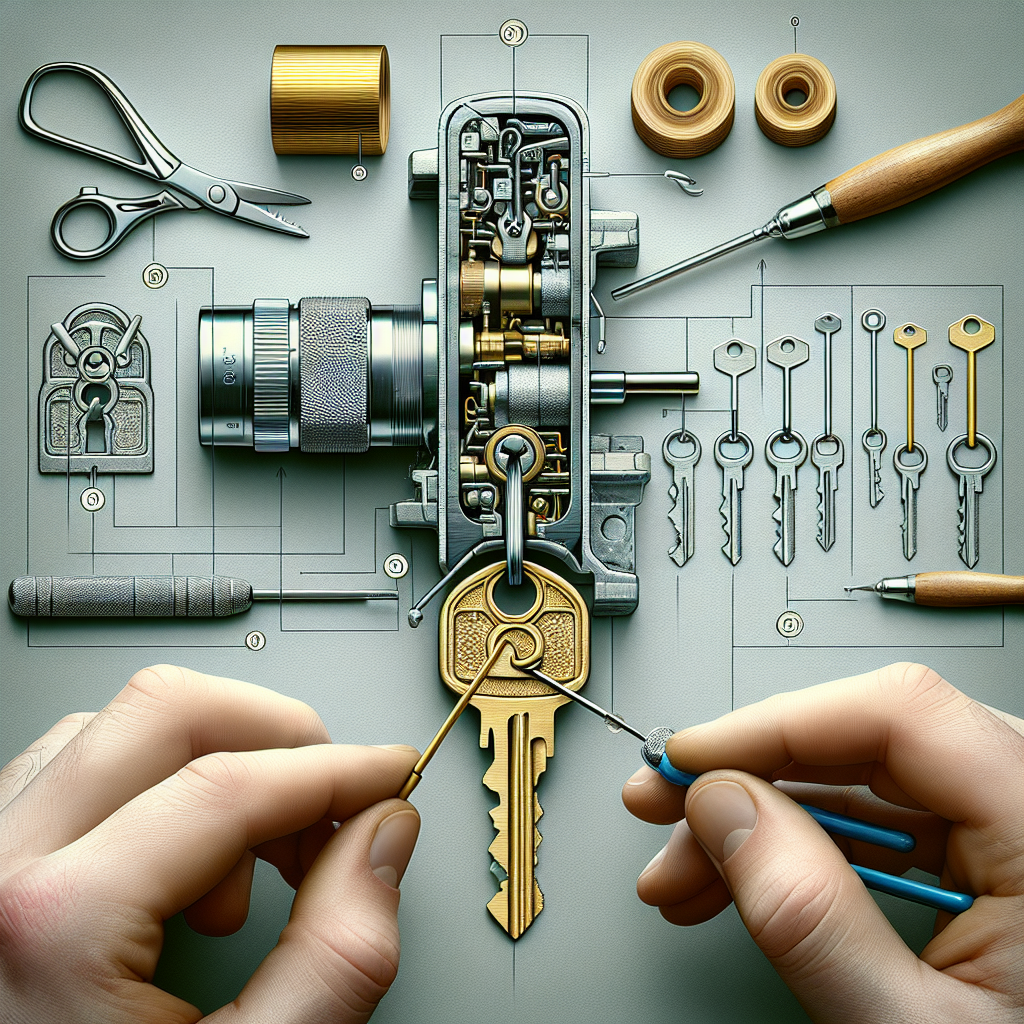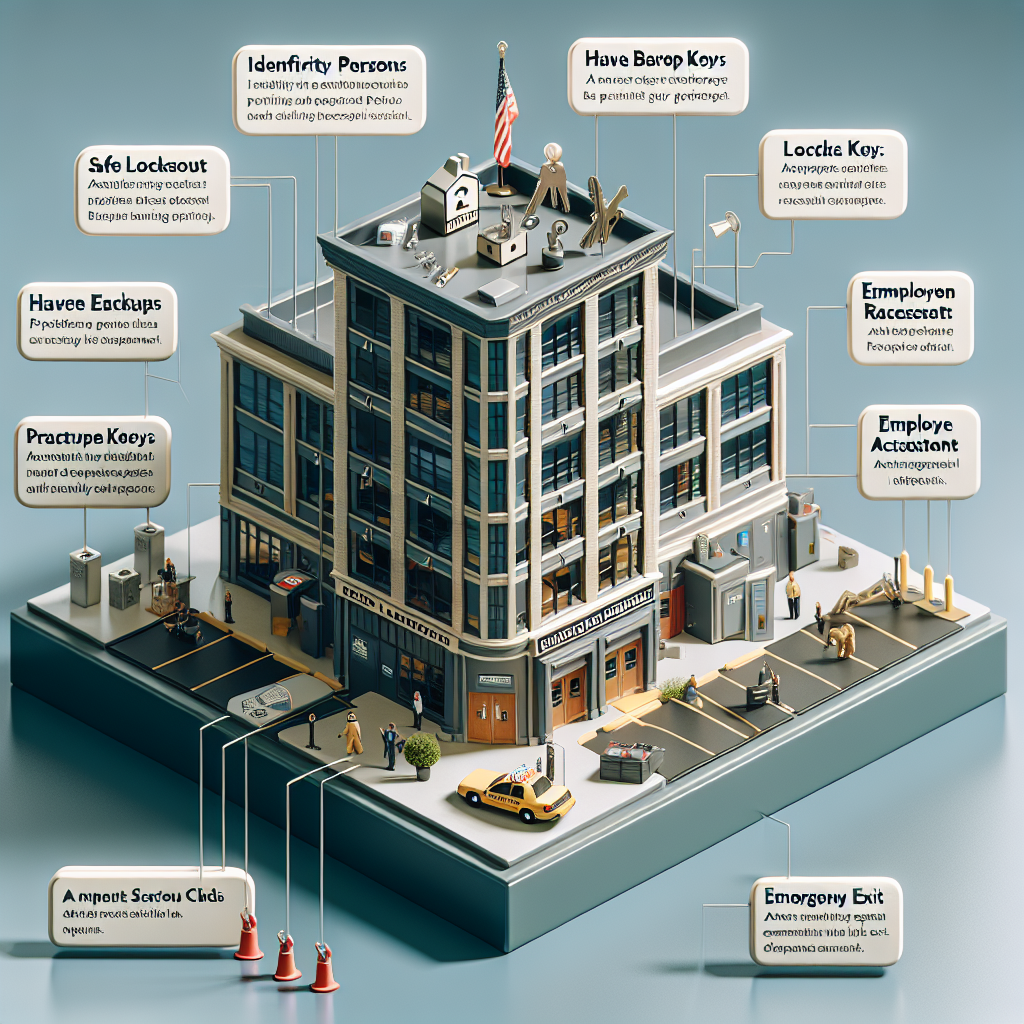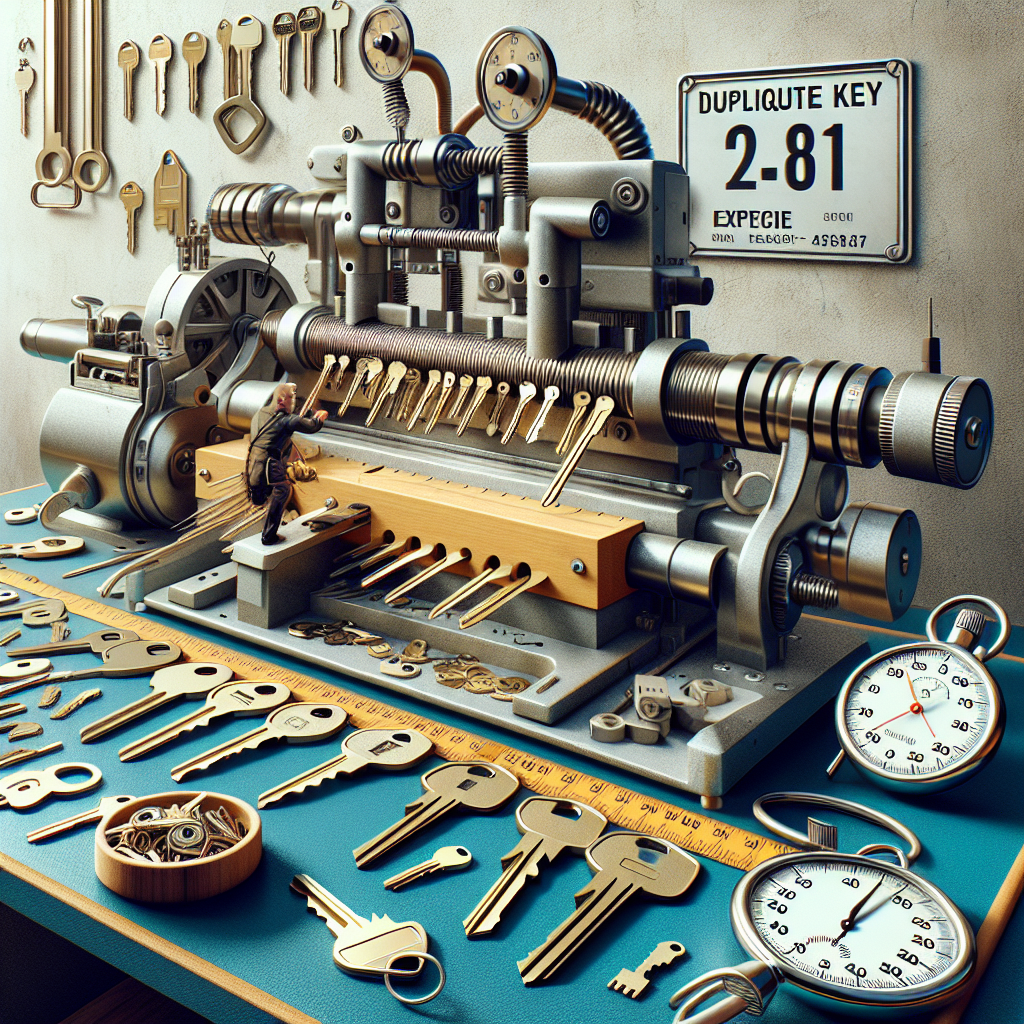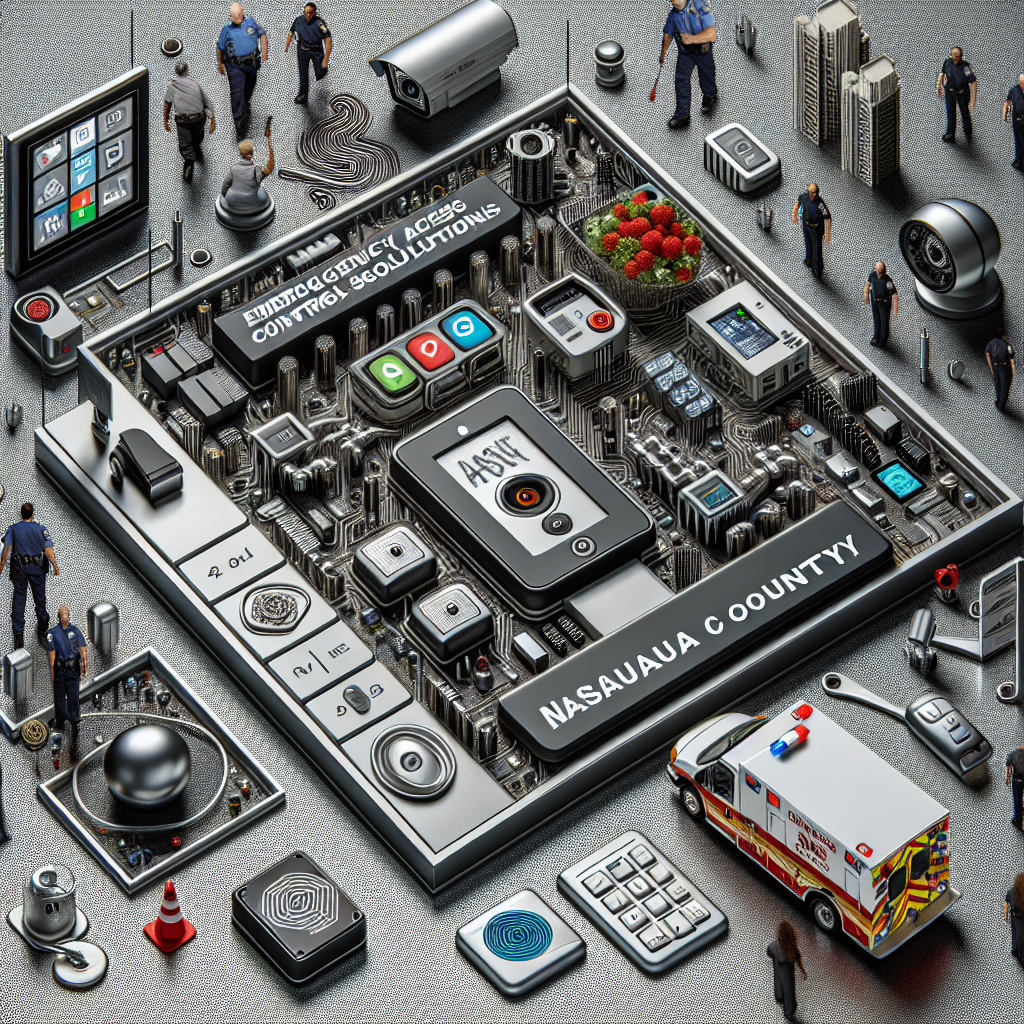Have you ever lost a key and dreaded the hassle of replacing locks or being locked out? This is where a locksmith’s expertise becomes a lifesaver. Locksmithing, an ancient craft, has evolved with technology, allowing professionals in this field to perform miraculous tasks. One such task is creating a new key from the existing lock itself, even when the original key is nowhere to be found. This intricate process, known as ‘lock decoding,’ requires a deep understanding of lock mechanisms and a skilled hand. It’s a brilliant solution that spares homeowners and businesses the inconvenience and expense of replacing entire lock systems.
As we delve deeper into the seldom-discussed corners of locksmith services, the following sections of the article will explore the fascinating methods and tools locksmiths use to craft a new key from a lock. We’ll demystify the art and science behind this process, highlighting the precision and expertise required to read a lock’s pins or wafers, and how locksmiths use this information to create a functioning key replacement. Also, we’ll reveal some key takeaways about the situations when this service is most needed, the types of locks that are suitable for key creation, and the potential costs involved. Whether you’re a homeowner, a business owner, or simply someone interested in the wizardry of lock manipulation, the insights to come will not only inform but also equip you with knowledge for potential future lock and key predicaments.
Key Takeaways
1. Locksmiths have the capability to create keys from locks by examining the lock mechanism and determining the corresponding key cuts. This process, known as ‘decoding’, allows locksmiths to fashion a key that matches the lock’s unique pin or wafer configuration without requiring the original key.
2. The most common methods a locksmith may use to make a key from a lock include impressioning, where a blank key is inserted into the lock and manipulated to create marks that reveal the necessary cuts, and disassembling the lock to directly access the pins or wafers.
3. Advanced key making might involve the use of specialized tools and machines, such as code cutting machines or key duplicators, which can precisely replicate the necessary cut patterns based on the lock’s specifications or manufacturer’s code.
4. Locksmiths can provide new keys for a variety of lock types including traditional pin tumbler locks, tubular locks, or even modern high-security locks, which often require more intricate and precise key-making techniques due to their complex designs.
5. In some cases, making a key from a lock is subject to legal restrictions; it is important to provide proof of ownership or authorization to duplicate keys for certain locks. Several locks also come with security features designed to prevent unauthorized key duplication, which might necessitate contacting the manufacturer for a solution.
Is it Possible for a Locksmith to Craft a Key Based Solely on the Lock?
Understanding Locksmith Key Making Techniques
When faced with a lock but no key, experienced locksmiths can employ various methods to create a new key. The process begins with lock disassembly, where a locksmith carefully dismantiles the lock to access its internal components and determine the key cuts needed. This technique requires a high level of skill and patience to ensure the lock’s integrity is not compromised during the process.
The Role of Lock Impressions in Key Creation
Lock impressioning is a technique whereby a locksmith inserts a blank key into the lock and turns it to bind the pins. With careful manipulation, marks or impressions are made on the blank, indicating where cuts need to be made. Skilled locksmiths can interpret these impressions to fashion a working key that aligns perfectly with the lock’s pin settings.
Decoding the Lock for Key Duplication
Some modern locks come equipped with a code that can be used to create a new key. Locksmiths can either find this code stamped on the lock or acquire it through the manufacturer. Once the code is obtained, they use it to determine the correct pin positions and cut a new key using specialized machinery. This process of decoding is often used in automotive locks or high-security lock systems where precision is crucial.
Utilization of Lock Picking for Key Making
In the absence of code or a way to disassemble the lock, locksmiths may resort to picking the lock open. Once picked, the locksmith can view the pin positions within the lock cylinder, allowing them to create a key that matches these positions. Lock picking requires a deep understanding of various lock mechanisms and substantial practice to master.
Advanced Key Cutting Machines and Their Importance
Professional locksmiths often use advanced key cutting machines that can replicate keys with high precision. These machines can follow an existing key’s template or be manually set to specific pin depths based on the locksmith’s analysis of the lock. There are also electronic machines that can interpret decoding information and automatically make the necessary cuts on a key blank.
Challenges with High-Security Locks and Solutions
High-security locks can pose significant challenges due to their complex structures and security features designed to resist manipulation. However, experienced locksmiths may have proprietary techniques or specialized tools that allow them to fabricate keys for these more secured locks. In some cases, they might need to obtain certain permissions or certifications to handle high-security systems legally.
Maintaining the Integrity and Security of the Lock
When creating a key from a lock, it’s essential to maintain the structural integrity and security of the lock. Professional locksmiths ensure they use non-destructive methods to create a new key, keeping the lock fully functional and secure. They also advise their clients on maintaining their locks to prevent future issues or potential security vulnerabilities.
What Step-by-Step Guide Can Assist in Crafting a Key for a Lock?
- Analyze the Lock: Determine what type of lock it is and the complexity of its mechanism.
- Choose the Right Technique: Based on the analysis, decide whether to disassemble the lock, use impressioning, decoding, or another method.
- Gather Tools: Prepare all necessary tools, including blank keys, impressioning tools, or key cutting machines.
- Create the Key: Execute the method chosen to create a key that matches the lock’s pin settings or code.
- Test the Key: Carefully test the new key in the lock to ensure it operates smoothly without forcing.
- Finishing Touches: If the key works, make any final adjustments to ensure the highest precision and quality.
- Maintain Security: Ensure the lock is reassembled correctly and remains secure for continued use.
Is it possible for a locksmith to create a key from a lock?
Yes, a professional locksmith can often make a key from a lock by using the lock’s internal components as a guide. This process requires skill and special tools, but it is commonly performed when the original key is lost or unavailable.
What types of locks can a locksmith make a key for?
A locksmith can make keys for a wide variety of locks, including residential, commercial, padlocks, and some automotive locks. However, the ability to create a key from a lock depends on the lock’s complexity and security features.
How does a locksmith make a key from a lock without the original key?
A locksmith can use techniques such as lock impressioning, where a blank key is inserted into the lock and manipulated to create marks that indicate where cuts need to be made, or disassembling the lock to determine the correct pin or disc configuration.
How long does it take for a locksmith to make a key from a lock?
The time it takes to create a key from a lock can vary depending on the lock’s complexity and the method used. Typically, it may take anywhere from a few minutes to an hour.
Is making a key from a lock more expensive than duplicating a key?
Making a key from a lock, known as key origination, is usually more expensive than duplicating an existing key due to the skill and time involved in deciphering the lock mechanism and crafting a new key.
Can a locksmith make a key for a car’s ignition from the door lock?
In many cases, a locksmith can make a key for a car’s ignition from the door lock, as they often share the same key profile. However, issues such as different keyways or additional transponder chip programming could complicate the process.
Do I need to provide proof of ownership for a locksmith to make a key from a lock?
Yes, reputable locksmiths will require proof of ownership before creating a new key from a lock to ensure that they are not aiding unauthorized access to property.
Will making a key from a lock damage the lock?
In general, creating a key from a lock by a skilled locksmith should not damage the lock. Professional locksmiths use techniques that preserve the integrity of the lock.
Is there a lock type for which a key cannot be made without the original?
High-security locks with restricted keyways or those that have non-duplicatable keys may prevent a locksmith from creating a key without the original, due to proprietary technologies and increased security measures.
Can electronic or smart locks be rekeyed without the original key?
Rekeying electronic or smart locks typically does not involve the physical key; instead, it involves reprogramming the access permissions. A locksmith with expertise in electronic locks might reset or reconfigure the lock to work with a new key or access code.
Final Thoughts
When it comes to answering the question, “Can a locksmith make a key from a lock?”, the answer is a resounding yes, in most cases. With the right expertise, a professional locksmith can employ various methods to derive the key cuts needed to fashion a new key, even without access to the original. This specialized service is not only valuable for those in a pinch but underscores the importance of locksmiths in maintaining our security and access controls. While costs may vary and certain high-security locks present additional challenges, the ability to create a key from a lock remains a cornerstone of locksmith services, providing peace of mind and solutions to those in need.
However, it’s crucial to understand that this service should always be paired with proper verification of ownership to prevent unauthorized access. As the security industry evolves and technology advances, locksmiths continue to adapt to work with an ever-increasing variety of locks, including sophisticated electronic and smart locks. In conclusion, whether you’ve misplaced your house key or need a duplicate for an antique chest lock, a certified locksmith is your go-to professional for creating keys from locks, ensuring that you’re never left out in the cold due to a missing key.







